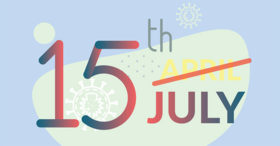You may have heard that the federal income tax filing and payment deadline has been extended from April 15, 2020, to July 15, 2020, to provide relief for taxpayers adversely affected by the coronavirus (COVID-19) pandemic.
What you may have missed is that the U.S. Treasury Department also extended the April 15, 2020, federal gift tax filing and payment deadline to July 15, 2020.
Filing gift tax returns
Generally, filing Form 709 — “United States Gift (and Generation-Skipping Transfer) Tax Return” is required if you make gifts to or for someone during the year (with certain exceptions, such as gifts to U.S. citizen spouses) that exceed the annual gift tax exclusion ($15,000 for 2019 and 2020). There’s a separate exclusion for gifts to a noncitizen spouse ($155,000 for 2019 and $157,000 for 2020).
Also, if you make gifts of future interests, even if they’re less than the annual exclusion amount, a gift tax return is required. Finally, if you split gifts with your spouse, regardless of amount, you must file a gift tax return.
As mentioned above, the deadline for filing a gift tax return has been extended to July 15, 2020. Being required to file a form doesn’t necessarily mean you owe gift tax. You’ll owe tax only if you’ve already exhausted your lifetime gift and estate tax exemption ($11.40 million for 2019 and $11.58 million for 2020). And you’re still allowed to request a filing and payment deadline extension to October 15, 2020.
Penalties and interest
Be aware that no interest, penalty or additions to tax for failure to file a Form 709 or to pay federal gift tax will be calculated on the postponed taxes for the period from April 15, 2020 to July 15, 2020. However, interest, penalties and additions to tax will begin to accrue on July 16, 2020.
Seek professional help
Estate tax rules and regulations can be complicated. If you need help determining whether a gift tax return needs to be filed, contact us. We’d be pleased to help.
© 2020 Covenant CPA


